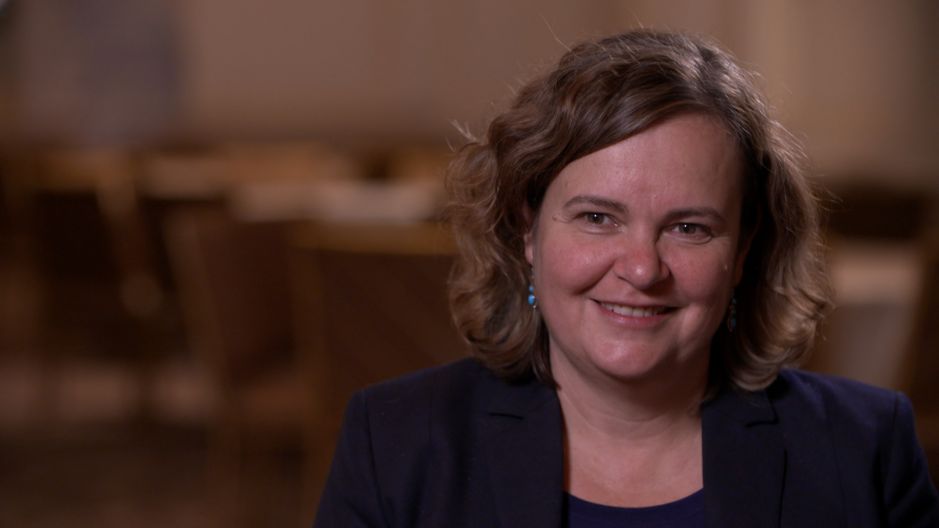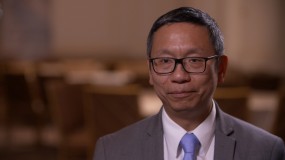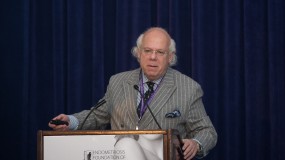Endofound Medical Conference 2017 "Breast, Ovary and Endometriosis" October 28, 2017 - Lotte New York Palace Hotel
Daniela Matei, MD
Professor, Department of Northwestern Medicine Feinberg School of Medicine
Interviewer: Okay. Today we're joined by Dr. Daniela Matai. Thank you so much for being here.
Daniela Matei: Thank you for having me. It's been a real pleasure to be part of this transdisciplinary conference.
Interviewer: Yes. Well it's been wonderful having you here. Just before we get going, could you please tell everybody your title just so that we get it right?
Daniela Matei: I'm the Diana, Princess of Wales Professor in Cancer Research at Northwestern University. I have a dual appointment in the Departments of Obstetrics and Gynecology in the Division of Gynecological Oncology as well as in the Division of Hematology Oncology. My research focuses on ovarian cancer, stem cells, and novel modality of treatment.
Interviewer: Okay. So talk a little bit about ... Or if you can, just give us kind of a summary of some of the things that you talked about in your presentation today.
Daniela Matei: Today I tried to describe some of our work looking at cancer stem cells in ovarian cancer, how these cells might be important in driving tumor initiation as they relate to endometriosis in the context of inflammation, but also to describe the characteristics of cancer stem cells based on our recent work that was published this year in a high impact paper. In this paper, we focused on characterizing metabolically the ovarian cancer stem cells, and we found that these cells are significantly enriched in unsaturated fatty acids, in unsaturated lipids.
We propose that this could be a novel marker to identify cancer stem cells in tumors. More importantly, we think that this unique metabolic feature can be exploited as an achilles heel to get rid or eradicate the cancer stem cells by inhibiting some of the enzymes that are involved in the conversion of saturated to unsaturated lipids.
Interviewer: Why do you think that it's important in the medical community that you look at the correlation between breast cancer, ovarian cancer, and endometriosis?
Daniela Matei: Well it is very clear in this conference actually brought this together by bringing experts from different fields that there are some crosscutting themes such as the role of steroid hormones in endometriosis, breast cancer, and other gynecologic cancers; the role of DNA alterations, mutations across these disorders. We've heard that many of these disorders are characterized by shared molecular pathways as well as by epigenetic mechanisms that are shared between cancers and endometriosis. And lastly by inflammation. That inflammation is important in cancer, and it's important in benign gynecological disorders as well as in benign breast disorders.
Interviewer: What is your personal takeaway after listening to the other speakers and talking about all the different topics from stem cells to hormones, et cetera? What is your takeaway? What do you do with this information going forward?
Daniela Matei: Personally, I think I'm most excited by the topic of inflammation and of the environment, how the environment drives disease. My laboratory doesn't work as much on steroid hormones, but I've certainly learned a few new things. I was quite impressed by the talk on the role of estrogen hormones on the brain. It's an area that I don't think about much, but both from a professional and a personal standpoint, there's certainly a few things that I learned today.
Interviewer: Well thank you so much for being here and sharing such interesting information with us today. Thank you.
Daniela Matei: Thank you for having me. It was a pleasure.










